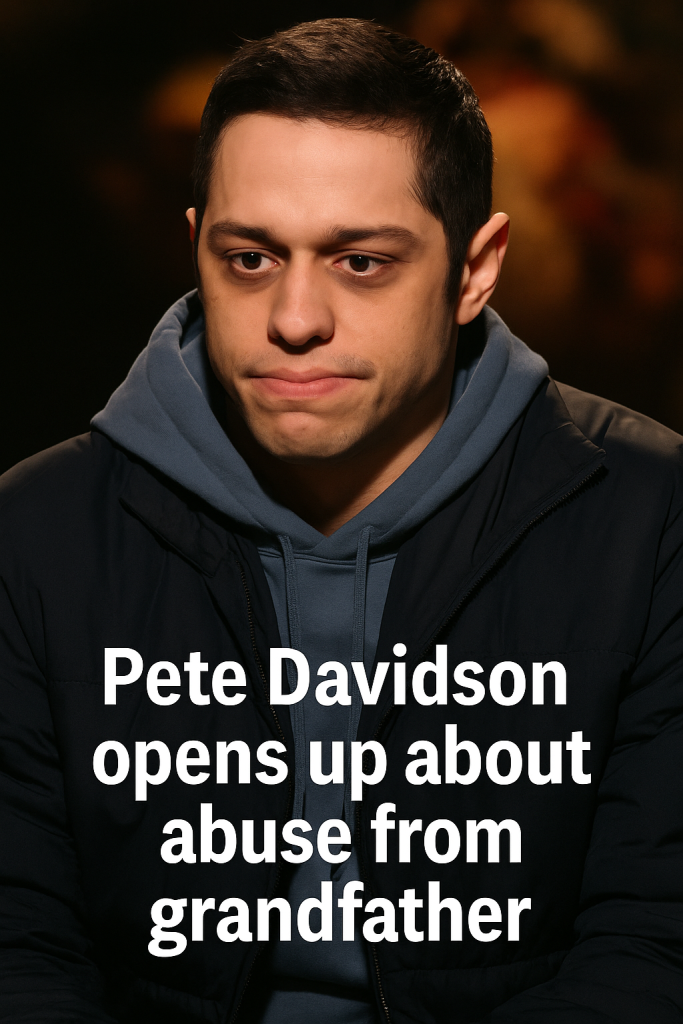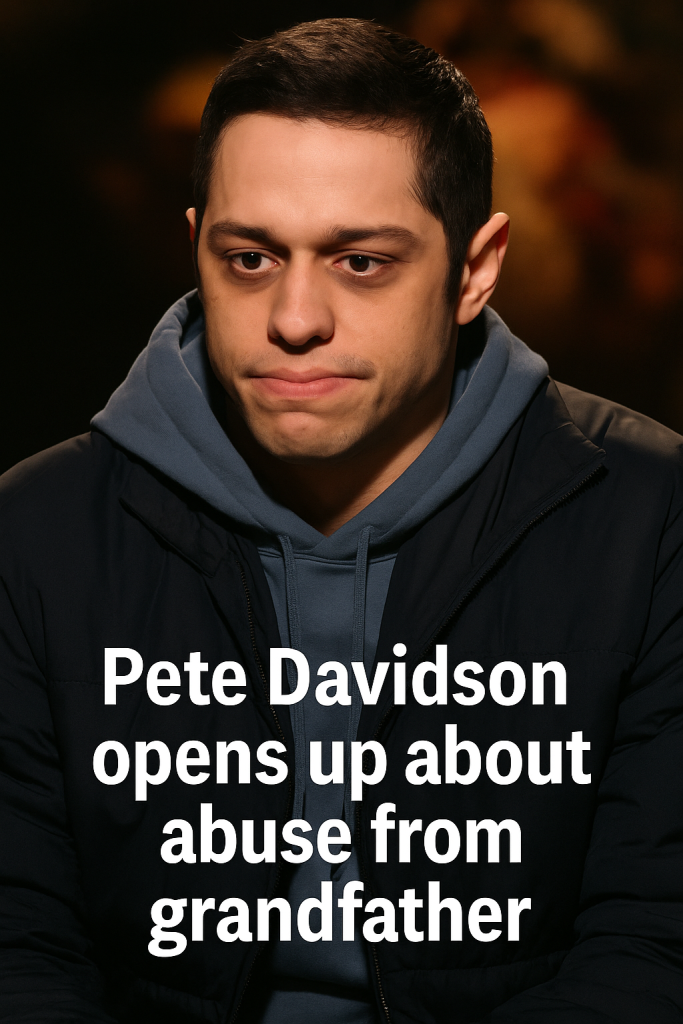In a startling and deeply personal revelation, comedian and actor Pete Davidson has opened up about the decades-long abuse he suffered at the hands of his grandfather. His candid remarks, which include the chilling admission that he is “thrilled” to see his grandfather die slowly, have sparked intense reactions and shed light on the complex emotions surrounding abuse survivors and family trauma.
Known for his brutally honest comedy and openness about mental health struggles, Davidson recently addressed the dark chapter of his life involving his grandfather. In a heartfelt interview, he detailed the emotional and psychological scars left by the abuse, explaining how it shaped many aspects of his life and outlook. Davidson revealed that the abuse was not a secret kept away but a shadow over his formative years, impacting his self-esteem and trust.
“I never imagined I’d talk openly about this, but it’s a part of me,” Davidson shared. “For years, I carried this anger and hurt. It’s complicated, but honestly, I’m thrilled to see him die slow. It’s not about revenge. It’s about justice and closure for the pain he inflicted.”
His words underline the understandable, raw emotions that survivors often experience, emotions that can include a desire for accountability and justice. Davidson’s candid admission also challenges the societal expectation that victims must automatically show forgiveness or erase their trauma to move forward.
The comedian’s disclosure has prompted many fans and mental health advocates to commend his bravery for confronting such a sensitive topic publicly. They emphasize that talking about abuse is a crucial step toward healing and raising awareness.
Throughout his career, Davidson has been open about personal struggles, including battles with depression, anxiety, and the trauma of losing his father in the 9/11 attacks. This latest revelation adds another layer to his story, illustrating how past abuses within family dynamics can have profound, lasting effects.
Experts say that Davidson’s experience is a powerful reminder of the importance of recognizing emotional and psychological abuse, which can often go unnoticed or unspoken. The fact that he voiced his feelings so openly may encourage others who have endured similar trauma to seek help and speak out.
While Davidson has not delved into explicit details about the abuse or his grandfather’s identity, his message is clear: the scars from childhood trauma are real, and processing them is a complex journey. His willingness to share this part of his life story highlights the need for broader conversations around family abuse, mental health, and justice.
In closing, Davidson expressed a cautious hope for healing. “I don’t wish for hatred to consume me, but I also don’t have to pretend things were fine. Sometimes, you just want people to recognize the pain they caused.” His words serve as a poignant illustration of how survivors navigate the difficult balance between pain, anger, and the desire for peace.
As Davidson continues to use his platform for honest dialogue, his story stands as an important voice for abuse survivors everywhere, emphasizing that confronting painful truths is an essential part of finding freedom and resilience.



